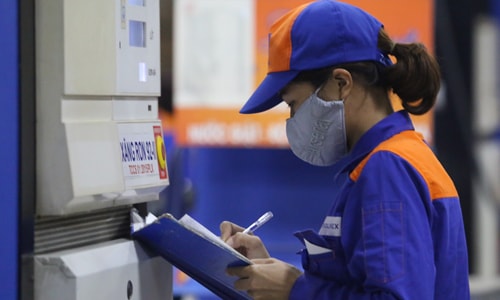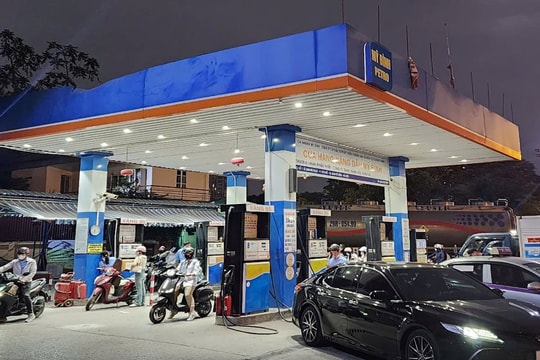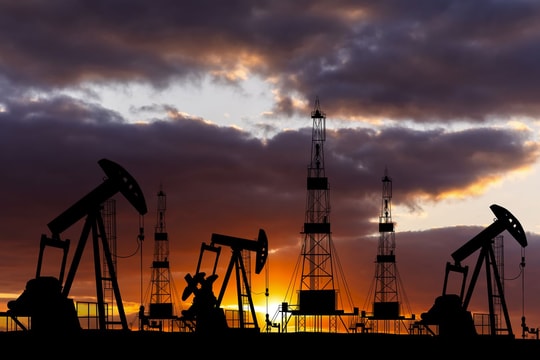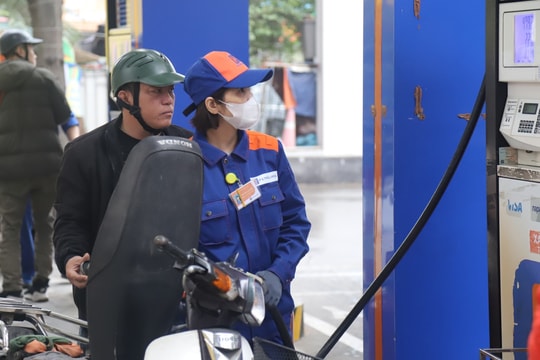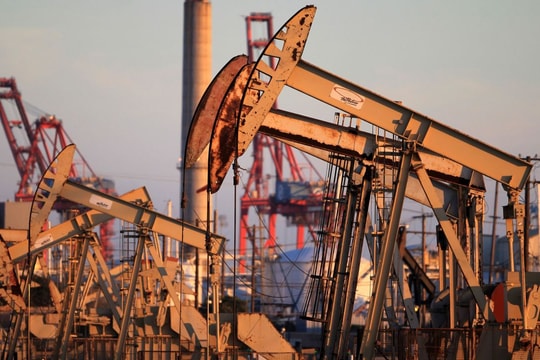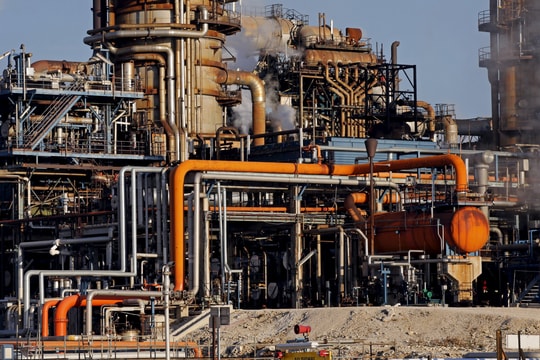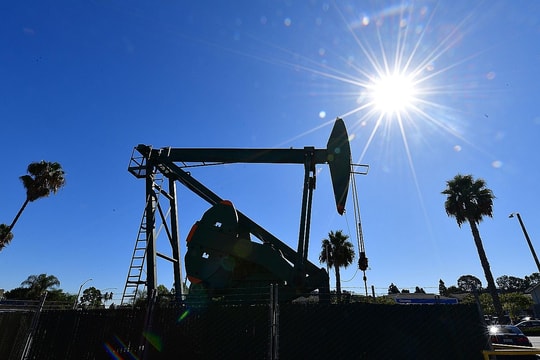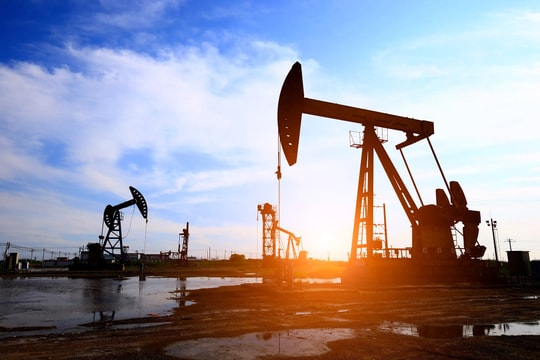What will happen to gasoline prices if environmental tax increases?
In the newly published draft, the Ministry of Finance proposed to simultaneously increase environmental protection tax on gasoline from 3,000 VND per liter to 4,000 VND - the current maximum level.
According to an expert in the petroleum sector, the tax increase will certainly affect the base price (the price used by the management agency as the basis for regulating retail prices). He said that if the price of crude oil and the input factors that make up the base price do not change, increasing the environmental tax by VND1,000 per liter of gasoline will increase the base price accordingly. This increase does not include the value added tax of the new environmental tax.
|
This is not the first time the Ministry of Finance has proposed increasing environmental tax on gasoline. Photo:Ngoc Thanh. |
On the contrary, if input factors fluctuate, such as the average weighted import tax being adjusted downward, according to the Ministry of Finance's calculations after July 1, the base price may not be affected much.
But according to N's assessmentWorld Bank (WB),Gasoline prices will be affected if environmental protection tax increases. According to the results announced earlier this year, with the option of adjusting by 1,000 VND per liter and if crude oil prices do not fluctuate much, other factors that make up the base price remain unchanged, the rate of increase in environmental protection tax on gasoline in the selling price will be nearly 5%, diesel about 3.2%; the strongest increase is mazut oil 8.9%.
Currently, petroleum is imported by key players from many markets with preferential tax rates according to different commitments. Therefore, the method of calculating the weighted average import tax, based on the actual imported goods of the previous quarter calculated for the following quarter, is applied by the Ministry of Finance to determine the base price.
However, from a business perspective, Mr. Nguyen Van Tiu - Director of Tu Luc Petroleum Joint Stock Company, said that retail prices will 'not be affected much' if environmental tax is increased. "Import tax on gasoline and oil is reduced according to international commitments, so even if environmental tax increases by 1,000 VND, the selling price will not have much impact," he said, adding that the proposal to increase tax is "reasonable".
The Ministry of Finance itself also calculated that if the environmental protection tax on fossil-based gasoline increases to 4,000 VND per liter, the tax rate on E5 gasoline will be 200 VND per liter lower, at 3,800 VND, a decrease of 50 VND compared to the current rate. With the regulation that the special consumption tax on E5 gasoline is lower than that on fossil-based gasoline, increasing the environmental tax on gasoline will create a difference between E5 gasoline and this type of gasoline.
This is not the first time the Ministry has proposed increasing environmental tax. A year ago, the Ministry also proposed to increase this tax to a maximum of VND8,000 per liter, but it was not approved by the competent authority.
Most economic experts believe that the Finance Ministry's argument of "increasing to offset the shortfall in import tax revenue" and Vietnam's gasoline price being "low compared to regional countries" is not convincing.
According to economic expert Ngo Tri Long, the continued proposal to increase the environmental protection tax on gasoline to the maximum level is the Ministry of Finance "choosing an easy task for itself but difficult for society". Mr. Long said that he sympathizes with the "difficulty" of the agency holding the national treasury in the budget deficit problem, so the easiest and best way is to increase taxes. "However, if public debt increases, we must restructure the budget revenue and expenditure, which means both expanding the taxable subjects to increase revenue and controlling spending," Mr. Long said.
This expert’s calculations show that Vietnam’s gasoline prices are currently 4,000 VND higher than the US and each liter of gasoline is burdened with many taxes and fees. According to him, if we only compare Vietnam’s prices with other countries in the region to see that they are low, it is not appropriate.
He also cited the Prime Minister's recent directive that taxes and fees should not be increased in 2018 to support production and business in the current context. "Vietnam's competitiveness is still low, as is people's income, so focusing on taxing only one product like gasoline is not advisable," said Mr. Long.
Agreeing with the viewpoint of using economic tools such as taxes and fees to protect the environment, many opinions say that using the excuse of compensating for budget deficit by raising the tax bracket on gasoline is not necessarily reasonable..Because, besides gasoline, there are many other products that pollute the environment just as much, such as coal, but are not taxed as highly. Not to mention the effectiveness of using this revenue is still a question mark.
Data from the Ministry of Finance shows that revenue from environmental protection tax has increased more than four times in the past five years. In 2012, the revenue from this tax was VND11,160 billion, increasing to VND44,323 billion in 2016 and about VND44,825 billion in 2017. This increase was due to the environmental tax increasing three times, from VND1,000 to VND3,000 per liter in May 2015.
If the new environmental tax on gasoline and oil is applied from July 1, the Ministry of Finance estimates that each year it will collect about 55,591 billion VND in environmental tax, an increase of nearly 14,900 billion VND. While environmental tax revenue has skyrocketed, spending on environmental protection has not been corresponding, from 9,000 billion VND in 2012 to 12,290 billion VND after 5 years, equivalent to 1% of the budget.

